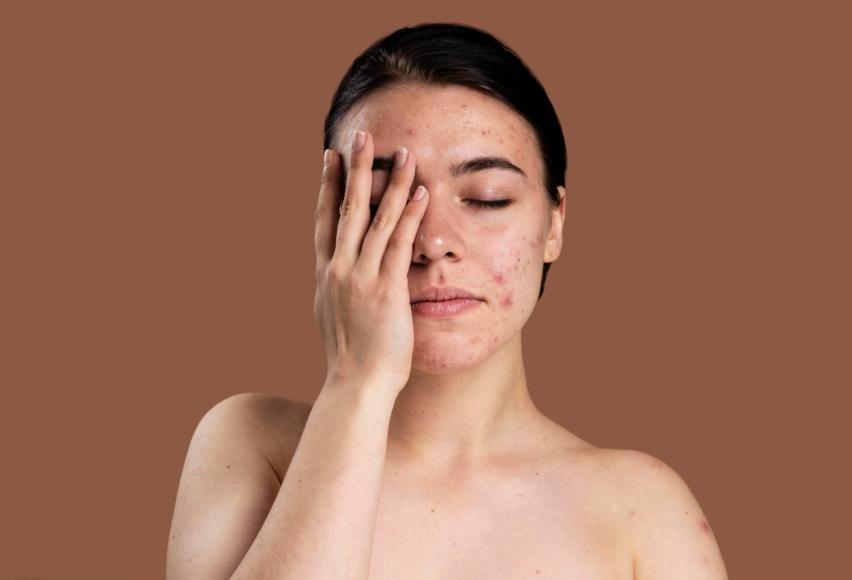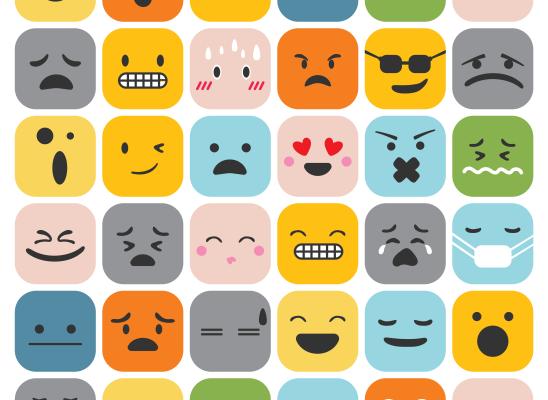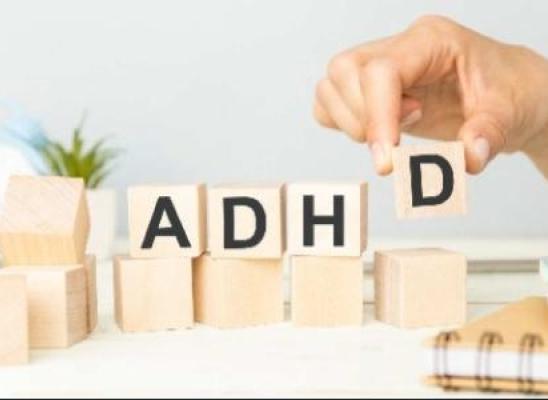Impulsivity and Skin Picking – Acne Excoriee: Is There A Connection?

Online test
Find out the severity of your symptoms with this free online test
Most people have had to deal with acne at some point. It’s a common skin condition thought to affect about 85% of people, mostly between the ages of 12 and 24, but can continue well into adulthood. If you’ve had (or have acne), you’ve probably been told not to pick your skin because it can scar. That’s a tall order. The National Survey on Acne found that about 95% of people with acne will pick at their acne at some point. People also reported that their acne was a source of anxiety and negatively impacted their self-confidence.
For most people, acne is bothersome but goes away over time. Sometimes, though, the urge to pick at the lesions is overwhelming and can lead to excessive picking, further injuring the skin and creating emotional distress.
Acne Excoriee
According to the American Osteopathic College of Dermatology, Acne Excoriee (AE) is a type of excoriation disorder where the person has a “conscious, repetitive, and uncontrollable desire to pick, scratch, or rub acne lesions”. It is part of a larger group of body focused repetitive behaviors (BFRBs) that include trichotillomania (hair pulling), excoriation disorder (skin picking), and nail biting. These disorders are categorized as Obsessive Compulsive Related Disorders (OCRD) meaning that they share similarities with OCD.
Why do some people pick at their acne knowing that they risk long term scarring? It has been suggested that choosing short term relief by picking at their acne and risk scarring over the long term choice of potentially scar free healing may be indicative of underlying impulsive behavior. Impulsivity is a core symptom for many mental health disorders including other body focused behaviors such as trichotillomania and skin picking disorder. There is also some evidence that people with AE may also have a co-occurring mental health disorder such as an anxiety disorder, obsessive compulsive disorder (OCD), or body dysmorphic disorder.
Does impulsivity play a role in AE? In what is thought to be the first of its kind, a new study takes a closer look at the role of impulsivity in AE and what it may mean for treatment of the disorder.
Impulsivity and Decision Making
Impulsivity is the tendency to make decisions and take action with little or no forethought, reflection, or consideration of the consequences. Impulsivity is commonly associated with behaviors that you might consider reckless, daring, aggressive or risky.
All impulsivity is not the same. There are different types of impulsivity making it a multidimensional concept:
- Motor impulsivity is the impulsivity you might think of as “acting without thinking”.
- Attentional impulsivity is characterized by an inability to focus attention or concentrate.
- Non-planning impulsiveness can be thought of as a lack of forethought or consideration of future impacts.
One of the impacts of impulsiveness is on the decision making process. Making quick decisions doesn’t allow for thinking things through or taking time to weigh the options or consequences of an action. While there are situations when impulsivity can be beneficial, for example when a decision is time-sensitive, research has found that people with high impulsivity tend to make risky choices and tend to be more motivated by immediate reward rather than long-term negative consequences.
People with AE and other body focused repetitive behaviors tend to continue engaging in skin damaging behaviors even when knowing that the behavior may have consequences both short- and long-term. High motor impulsivity has been associated with skin picking disorder while high attentional impulsivity has been associated with hair pulling.
Is Impulsivity A Factor In Picking?
Results of this recent AE study suggest that impulsivity may indeed play a role in AE.
- People with AE showed an elevated level of non-planning impulsivity as opposed to the motor impulsivity found with skin picking disorders or attentional impulsivity found with hair pulling. These findings suggest that although these disorders are similar, they may be related to different dimensions of impulsivity and different neurobiological processes.
- While AE has been reportedly associated with anxiety and depression, this current study did not find significant differences between AE+ and AE- groups.
- Results did show a correlation between anxiety, depression and impulsivity suggesting that the presence of anxiety or depression may affect one’s impulsivity.
Implications for Treatment
Cognitive behavioral therapy is considered the first-line treatment for impulse-driven disorders like skin picking. Behavioral interventions, like Habit Reversal Training, have been shown to be effective to address skin picking disorder given its predominant motor impulsivity. The study authors suggest that cognitive interventions might be a more effective approach for AE given the predominance of non-planning impulsivity. They do note that further research is needed to determine the most effective approach for treatment.
Studies like this one shed light on the complexity of body focused behaviors and the need to consider the unique differences as well as the similarities between similar disorders. The more we learn about their connectedness, the more information researchers have to develop effective and targeted treatments.
Resources
1. Skin conditions by the numbers. (n.d.). American Academy of Dermatology. https://www.aad.org/media/stats-numbers
2. National survey on acne. (2022, May). Face Reality Skincare. https://facerealityskincare.com/pages/national-survey-on-acne
3. American Osteopathic College of Dermatology. (n.d.). Acne Excoriee. https://www.aocd.org/page/AcneExcoriee
4. Leppink, E. W., Redden, S. A., & Grant, J. E. (2015). Impulsivity in body-focused repetitive behavior disorders: Disparate clinical associations between three distinct measures. International Journal of Psychiatry in Clinical Practice, 20(1), 24-31. https://pubmed.ncbi.nlm.nih.gov/26542614/
5. Öğüt, Ç., & Öğüt, N. D. (2022). Impulsivity in patients with acne excoriee. Journal of Cosmetic Dermatology, 22(3), 1099-1104. https://onlinelibrary.wiley.com/doi/pdf/10.1111/jocd.15535
6. APA dictionary of psychology. (n.d.). APA Dictionary of Psychology. https://dictionary.apa.org/impulsive
7. Stanford, M. S., Mathias, C. W., Dougherty, D. M., Lake, S. L., Anderson, N. E., & Patton, J. H. (2009). Fifty years of the Barratt impulsiveness scale: An update and review. Personality and Individual Differences, 47(5), 385-395. https://www.sciencedirect.com/science/article/abs/pii/S0191886909001639
8. Martin, L. E., & Potts, G. F. (2009). Impulsivity in Decision-Making: An Event-Related Potential Investigation. Personality and individual differences, 46(3), 303. https://www.ncbi.nlm.nih.gov/pmc/articles/PMC2663910/
Online test
Find out the severity of your symptoms with this free online test
Start your journey with SkinPick
Take control of your life and find freedom from skin picking through professional therapy and evidence-based behavioral techniques.
Start Now



